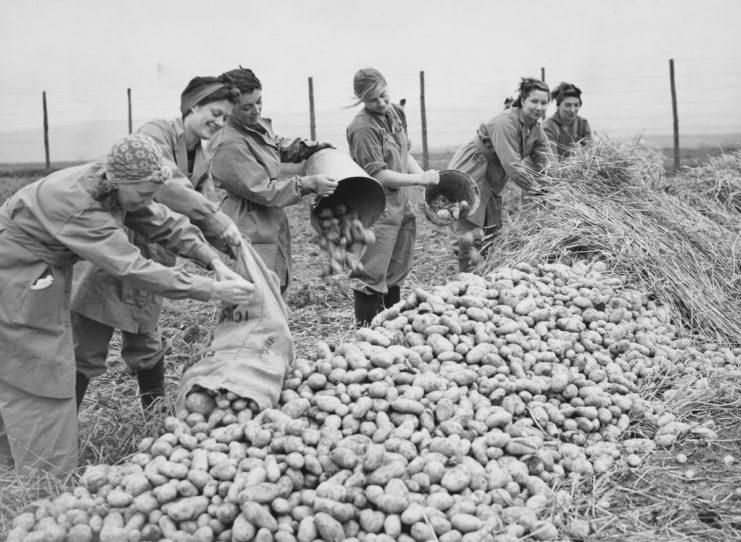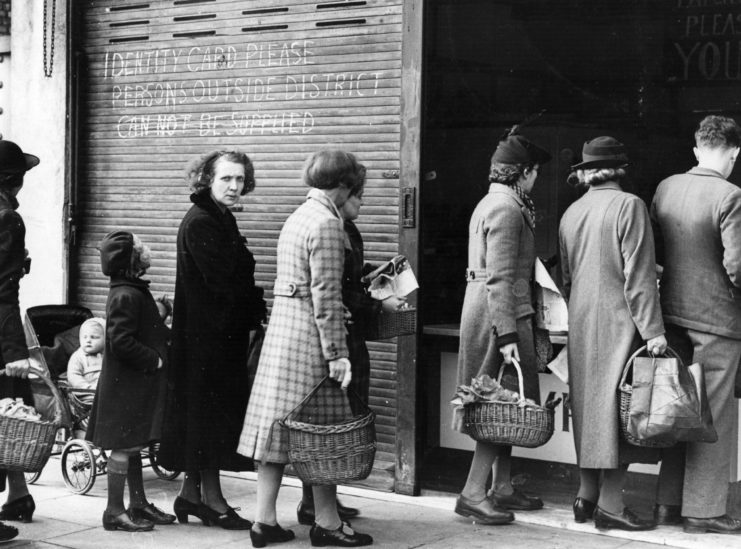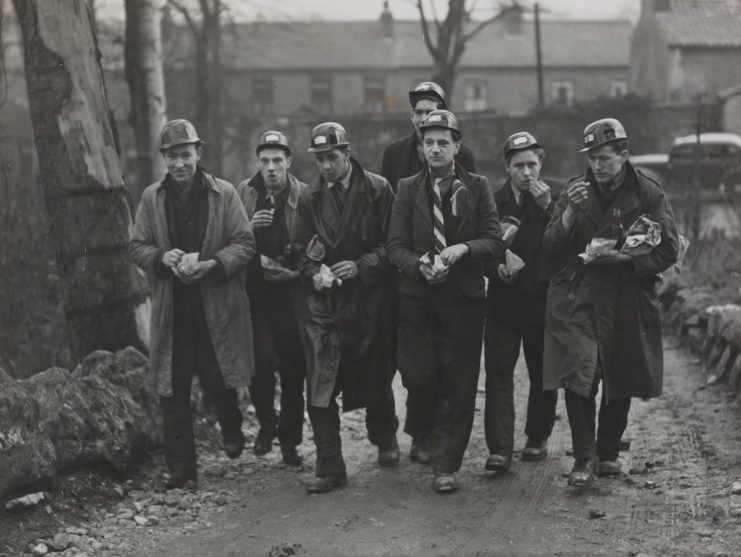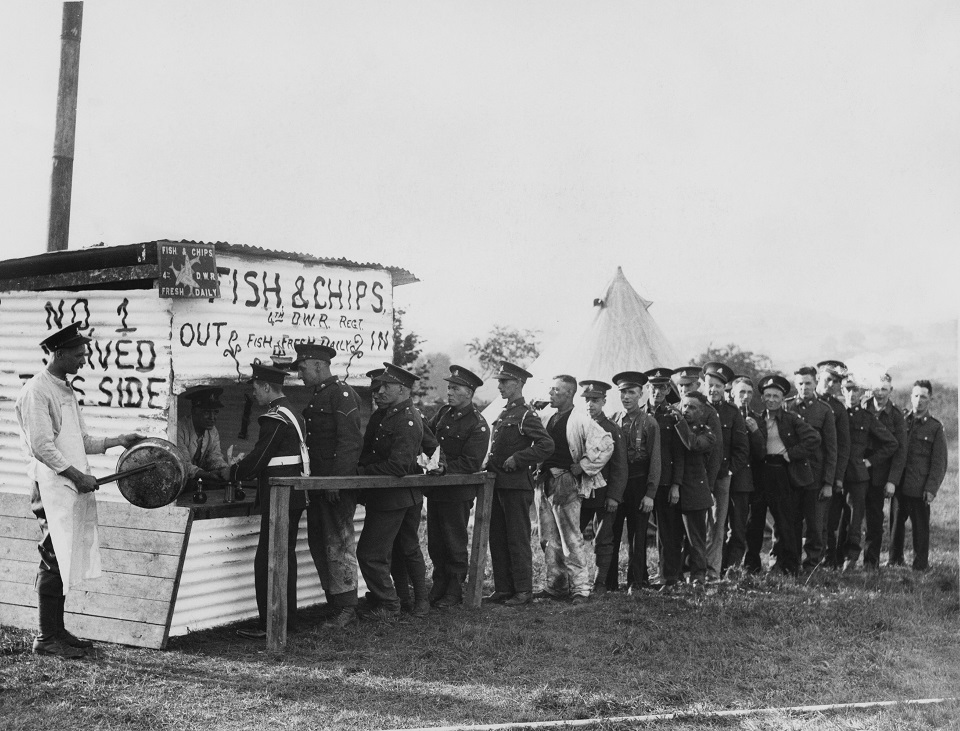You may take our tea, sugar, biscuits, and jam, but not our fish and chips!
To defeat Germany during WWII the British population had to give up staple items, mostly without much objection. They were prepared to have their gas, bacon, sugar, and butter rationed for the sake of winning the war, but fish and chips were one step too far. This classic British dish continued to be consumed without interruption for the duration of the war.
As suggested by the name, the humble meal of fish and chips contains fried fish in a crispy batter served with a portion of chips. It is not known where exactly this meal originated from, but it was extremely popular by the late 1800s. At the start of the 20th century, there were over 20,000 fish and chip shops in Britain.
Rationing

During the world wars, military production and disruption in supply chains meant many foods and other staples of everyday items were less available, or completely impossible to source. To make sure that everyone had a fair share of these small supplies, the British government introduced rationing. At first, this affected fuel, but later came to include basics such as eggs, sugar, and jam. Meat was also rationed, although game meat was not. Things that were not rationed, like some fruits and vegetables, were still hard to come by.
Maintaining fish and chips

The government ensured that there was a continuous supply of fish and potatoes during WWI and WWII.

Not only was fish and chips an enjoyable meal, but it also saved lives in combat zones. British troops were known to use the name of the popular dish to identify friendly troops: one would shout fish, and the other would reply chips.
